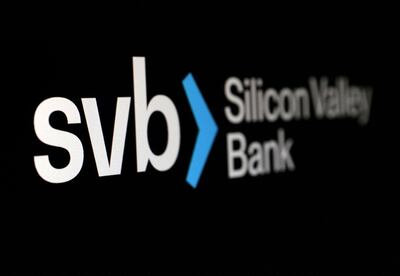Federal Reserve Chairman Jerome Powell on Thursday said there must be stronger supervision of the banking sector and that regulators must act more quickly after banking turmoil this year sparked fears of a new crisis.
Silicon Valley Bank's collapse in March caused a run on other US banks, including the failed Signature and First Republic banks. SVB's failure had profound effects across the world too with Swiss bank Credit Suisse bought by rival UBS.
“These events suggest a need to strengthen our supervision and regulation of institutions of the size of SVB,” Mr Powell said in prepared remarks at a banking conference in Madrid.
“I look forward to evaluating proposals for such changes and implementing them where appropriate,” he said
Mr Powell said one of the reasons why regulators missed threats posed to the banks was because of “the natural human tendency to fight the last war”.
Unlike the 2008 crisis, which stemmed from credit risk and insufficient funds, SVB's vulnerabilities resulted from exposure to interest rate risk and a business model that heavily relied on uninsured deposits.
A review report from the Fed earlier this year characterised SVB's collapse as a “textbook case of mismanagement”, although the California bank's former chief executive blamed it on high-interest rates and social media.
The report also acknowledged that regulators failed to take forceful action at the time and called for greater banking oversight.
Mr Powell said SVB's collapse was unlike others that came before it in that investors could withdraw money from their phones.

“Notably, bank runs were no longer a matter of days or weeks – they could now be nearly instantaneous,” he said.
Mr Powell's remarks in Spain come after the Fed's annual stress test showed that major US banks would survive a “severe global recession”.
The results “confirmed the banking system remains strong and resilient”, Vice Chair for Supervision Michael Barr said in a statement.
The results of the 23 major banks examined showed that while they would face heavy losses, they would be able to continue lending.
“The bank runs and failures in 2023, however, were painful reminders that we cannot predict all of the stresses that will inevitably come with time and chance,” Mr Powell said.
“We therefore must not grow complacent about the financial system's resilience.”
Two more interest rate increases likely to come this year
After skipping raising interest rates this month, the Fed is expected to issue two more increases this year.
Officials at the central bank anticipated in their June 13-14 that the federal funds rate will reach 5.6 per cent this year, up from its previous 5.1 per cent projection.
Mr Powell said he and other participants “expect that it will be appropriate to raise interest rates two or more times by the end of the year”.
The Fed chairman reiterated that the extent of the effects caused by the recent banking collapses remains to be seen.


